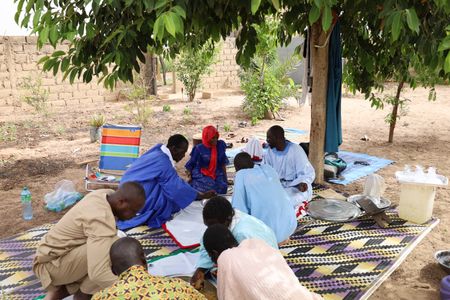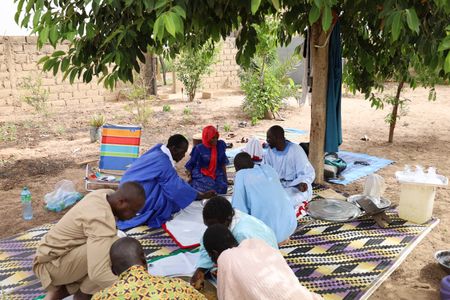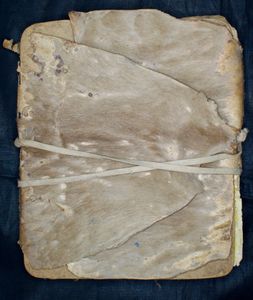Explore the menus below to discover some of the research projects currently underway at Boston University’s Department of Anthropology.
The Boston University NEH Ajami project, led by Prof. Fallou Ngom (Project Director) and Dr. Daivi Rodima-Taylor (Project Manager), has developed unique resources in the course of its three-year research engagement, funded by the National Endowment for the Humanities. The project, Ajami Literacy and the Expansion of Literacy and Islam: The Case of West Africa, has digitized a selection of manuscripts in Ajami (African language texts written with a modified Arabic script) in four major West African languages (Hausa, Mandinka, Fula, and Wolof), transcribed and translated them into English and French, prepared commentaries, and created related multimedia resources to be made widely available to the scholarly community and the general public. The Ajami literatures that have developed in sub-Saharan Africa hold a wealth of knowledge on the history, politics, and cultures of the region, but are generally unknown. The history of Ajami refutes the claims that Africa lacks written traditions. The project is the first systematic comparative approach of several major African languages written in Ajami, examining the different patterns of Ajami development in these four languages and literatures, and the multiple forms and custodians of Ajami literacy. It also marks the first time that such varied African Ajami documents have been translated into two major European languages (French and English) and made accessible to communities and scholars globally. The project facilitates interpretive knowledge about the meaning and purpose of Ajami texts, their social functions, and the voices of the people who have written, own, and use them. Our multi-disciplinary team of scholars and Ajami experts in Africa and the United States has digitized, transcribed and translated several thousand pages of texts and prepared selected video and audio files that can be accessed on our website: https://sites.bu.edu/nehajami/. NEH Ajami Literacy and the Expansion of Literacy and Islam: The Case of West Africa


Our ongoing Readers in Ajami Project is a three-year project funded by the U.S. Department of Education. It aims to develop specialized Ajami Readers in Hausa, Wolof, and Mandinka with a multimedia companion website to provide American students, language teachers, scholars, and American professionals working in Muslim Africa with the necessary linguistic, cultural and literacy skills to engage Ajami users. The Readers include instructional material on diverse topics, such as The resources of the project will cover a range of fields, including business and economy, health and medicine, agriculture and the environment, and human rights, politics and diplomacy. The project will produce a methodology that can be replicated for other world languages with dual literacy systems (Ajami and Latin script orthographies). It will provide an optimal model of how to build and sustain specialized textual and digital educational resources that incorporate local voices and knowledge recorded in multiple African Ajami scripts – something many academics and professionals have overlooked for centuries. The project draws on the expertise of our NEH Ajami project in social anthropology, African linguistics, pedagogy, and digital technology.Readers in Ajami (RIA) Project Developing Instructional Materials in African Ajami


Our new research grant is from the Endangered Archives Programme of the British Library for a project “Digital Preservation of Fuuta Jalon Scholars’ Arabic and Ajami Materials in Senegal and Guinea.” The project that will commence in Spring 2023 will digitally preserve 50,000 pages of endangered Arabic and Ajami manuscripts produced by Fuuta Jalon scholars who lived in the 18th-20th century in the Republic of Guinea. The project aims to advance scholarly knowledge about the rich bilingual works of Fuuta Jalon scholars, and also contribute to the understanding how some enslaved Africans were educated in Arabic and Ajami literacy skills before their captivity in the Americas. The long-term goals of the project include knowledge transfer and capacity building in African communities, as well as fostering teaching, research, and academic publication.New Research Grant for the Study of Fuuta Jalon Manuscripts in Senegal and Guinea

